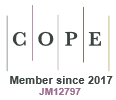Modeling Smoldering Emissions From Prescribed Broadcast Burns in the Pacific-Northwest
SA Ferguson and CC Hardy
International Journal of Wildland Fire
4(3) 135 - 142
Published: 1994
Abstract
The objective of this study was to improve a smoke emissions model that is currently being used to help reduce pollution impacts from prescribed burning of timber harvest residues. Smoke emissions from these types of burns have been characterized with in situ, real time sampling packages. When emissions flux data from these sampling packages were compared with an existing emissions production model, it was found that the variety of rate characteristics for smoldering combustion caused by different burning conditions were not adequately described by the model. Therefore, we used the acquired data to develop an improved model for the early smoldering portion of broadcast prescribed fires. First, the data were compared with field measurements of pre-burn fuel loading, fuel moisture, and calculated biomass consumption. A linear relation was found between total biomass consumption and a rate constant for the exponential decay of smoldering emissions. The resulting regression equation was compared with observed data from previous studies and found to adequately predict an exponential decay constant, which is used to describe the early smoldering portion of harvest residue burns.Keywords: Prescribed burning; Smoldering; Silviculture; Smoke; Emissions
https://doi.org/10.1071/WF9940135
© IAWF 1994


